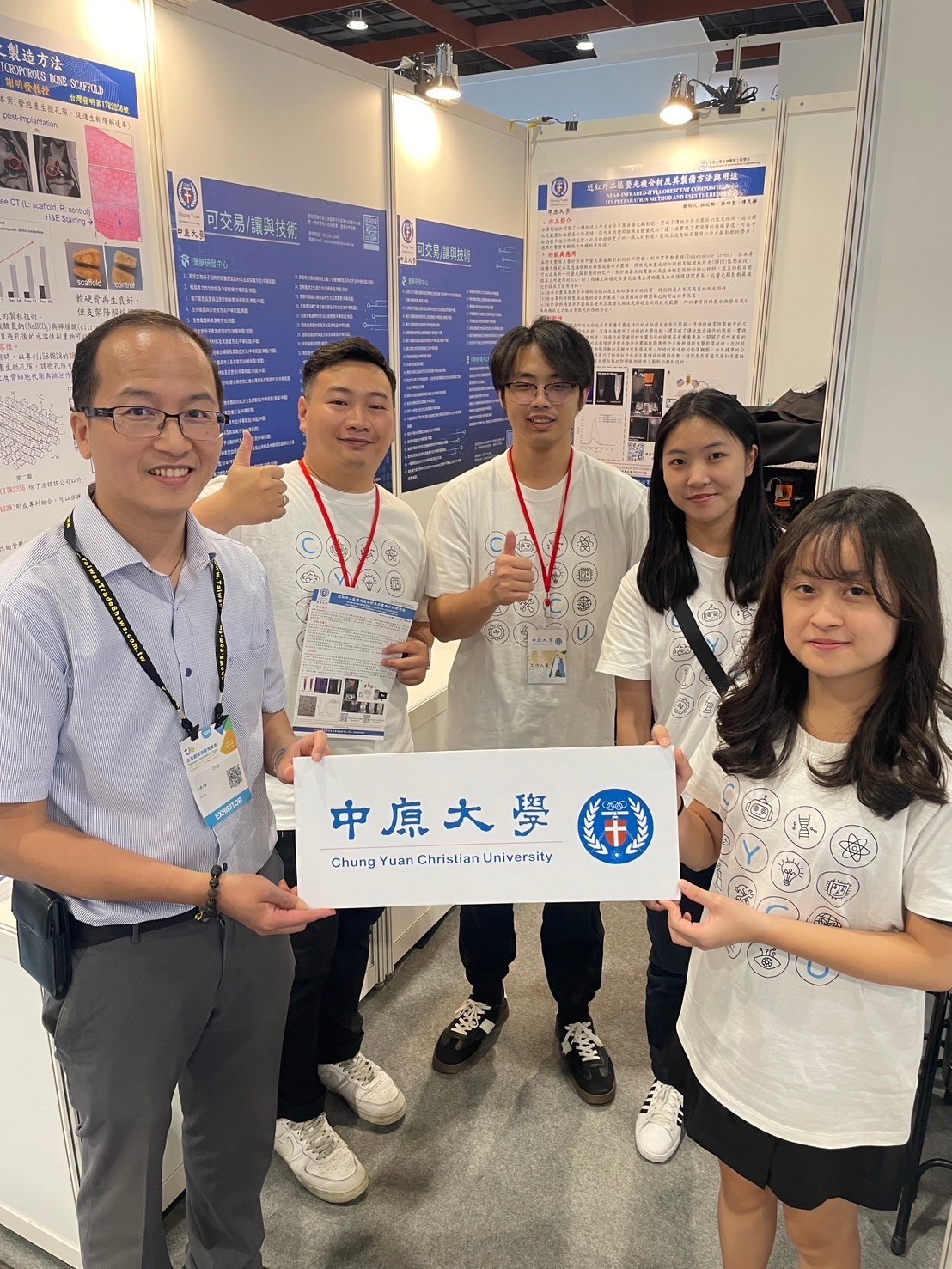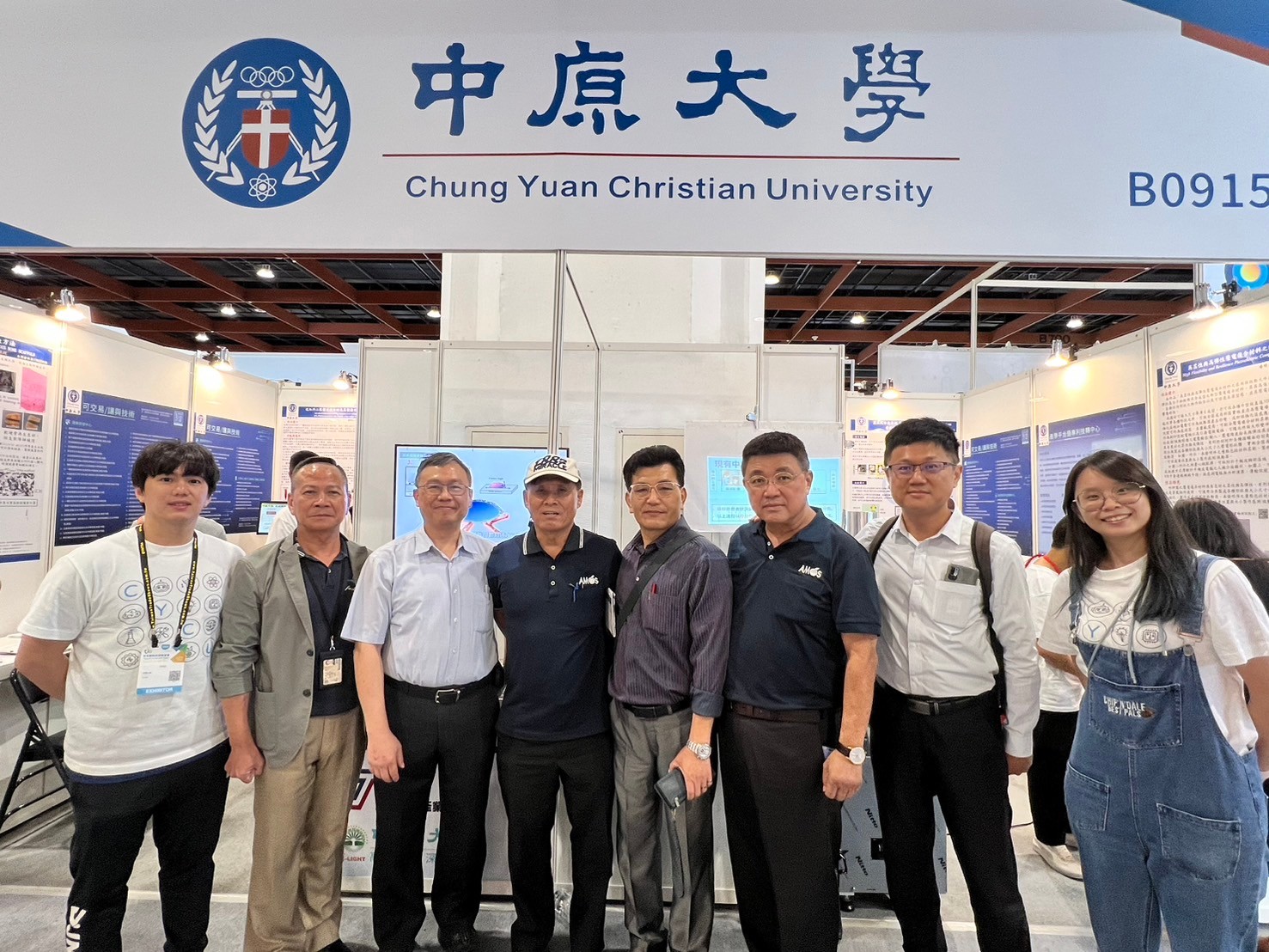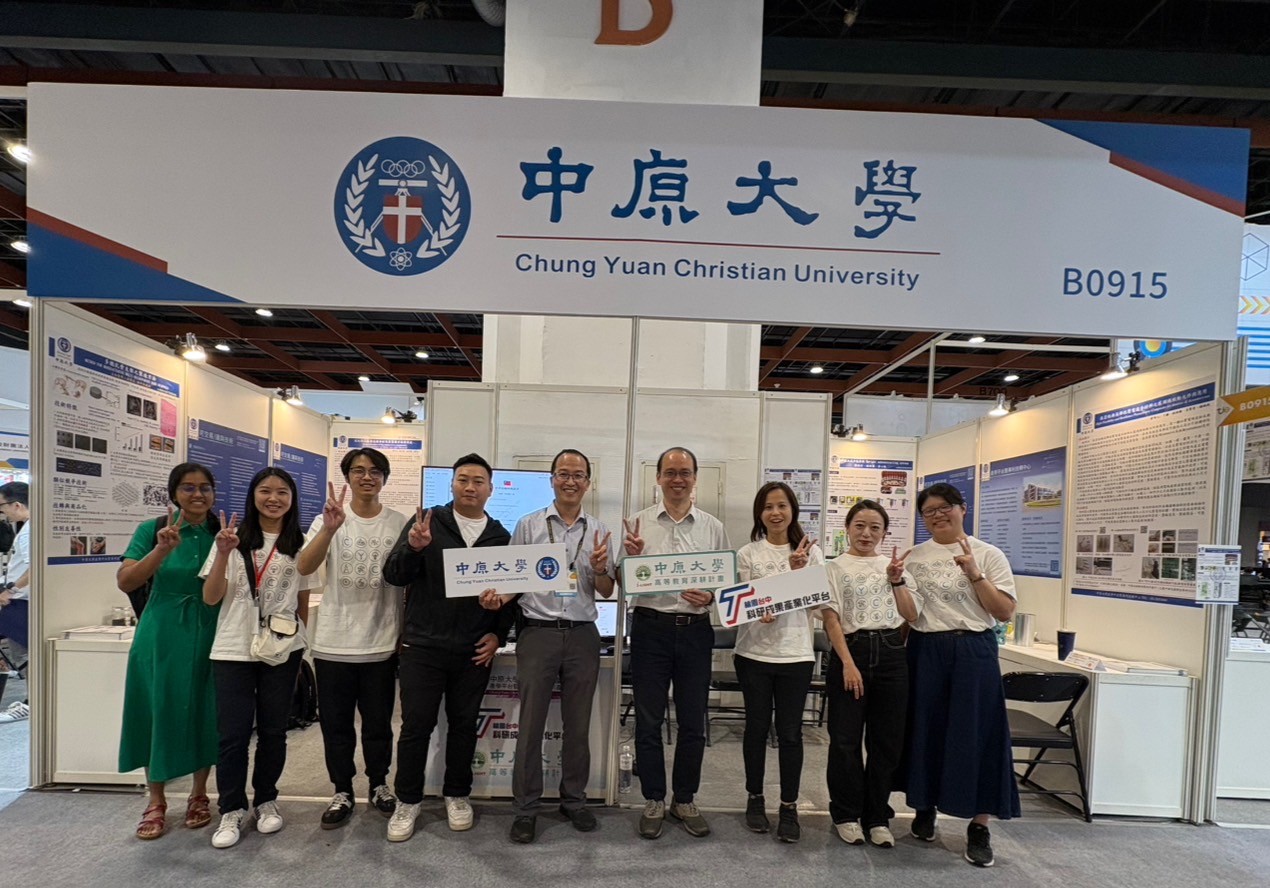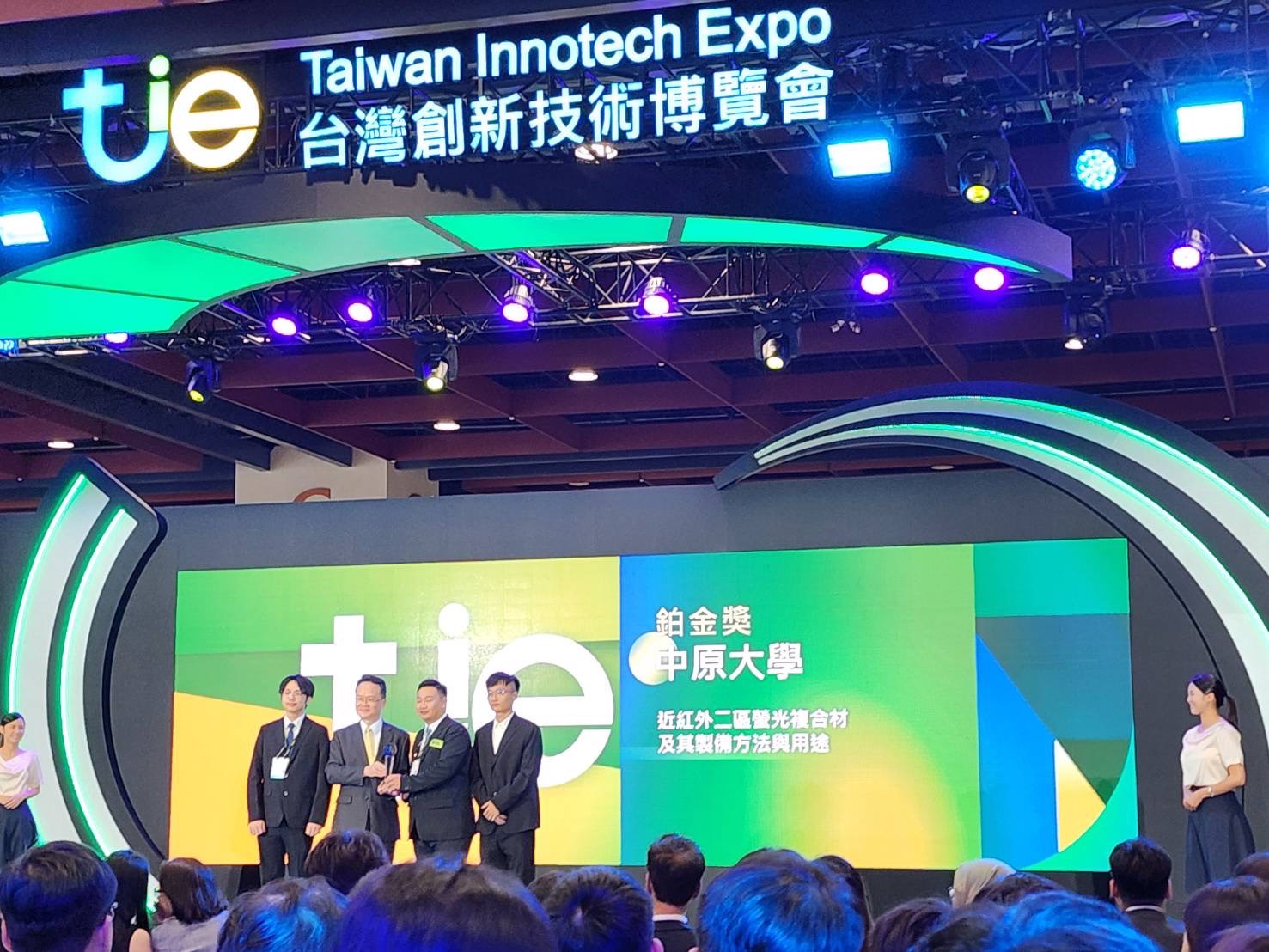Chung Yuan Christian University once again clinched the top Platinum Award at the Taiwan Innotech Expo’s invention competition in 2024, following its victory in 2023. The consecutive wins were achieved by a team led by Associate Professor Lin Cheng-An from the Department of Biomedical Engineering, utilizing patented nanobiomedical microscopy and medical contrast agent technologies. Additionally, Professor Huang Hsin-Hsing from the Department of Mechanical Engineering and Professor Hsieh Ming-Fa from Biomedical Engineering won gold and silver medals, further showcasing CYCU’s strong innovation capabilities and contributing to industry advancement.
The Taiwan Innotech Expo (TIE), held from October 17-19 at the Taipei World Trade Center, brought together innovative achievements from Taiwan’s academia, government, and industry sectors. The highly competitive “Invention Competition,” which attracted nearly 600 entries from domestic and international inventors, saw global participants vying for the prestigious Platinum Award. CYCU entered four patented technologies into the competition, ultimately securing one Platinum, one gold, and one silver medal, earning widespread attention for winning the Platinum Award for two consecutive years.
Associate Professor Lin Cheng-An’s team was recognized with the Platinum Award for their “Near-Infrared II Fluorescent Composite Material, Preparation Method, and Applications.” The innovation lies in synthesizing water-phase fluorescent gold nanoclusters with exceptional fluorescence characteristics. Through precise size control during the process and the use of water-phase synthesis technology, the material’s optical performance was significantly enhanced, overcoming traditional emission limitations and enabling efficient emission in the shortwave infrared spectrum. This breakthrough has profound implications for biomedical imaging, offering new opportunities in clinical diagnostics, disease monitoring, and real-time physiological observation with improved penetration depth and sensitivity.

Professor Huang Hsin-Hsing from the Department of Mechanical Engineering won the gold medal for his “Vertical Packaging Technology.” His team developed a fully automated vertical powder packaging machine utilizing this technology. The machine features a cylindrical medicine container with a built-in piston that pushes the powder upward. By monitoring the piston’s position, the machine precisely calculates the amount of powder to be packaged, effectively reducing dust generation and increasing packaging speed. The packaging process uses a rolling heat-sealing mechanism combined with an electric cylinder to seal and cut the bottom of the packets. This innovation not only saves space but also allows flexible control over the packet length, marking a significant breakthrough for the pharmaceutical industry.

Additionally, Professor Hsieh Ming-Fa from the Department of Biomedical Engineering received the silver medal for his “Manufacturing Method for Multi-Microporous Bone Scaffolds.” This patented technology uses a green foaming process to create micropores and 3D printing to produce the scaffolds. The innovation maintains the biocompatibility of medical materials, allowing control over the scaffold’s surface area to facilitate bioabsorption, as well as the metabolism and excretion of bone cells after implantation. Moreover, it promotes the proliferation of healthy bone cells, offering significant clinical potential for joint treatments, particularly for osteoporosis in the elderly or postmenopausal women.

Associate Professor Lin Cheng-An from the Department of Biomedical Engineering, who led the team to win the Platinum Award for two consecutive years, highlighted that this year’s invention—near-infrared imaging agents—addresses a key clinical issue of identifying sentinel lymph nodes for biopsies before cancer metastasis. This invention is also the representative work of PhD student Sun Yi-Tang. Remarkably, last year’s Platinum Award-winning nanobiomedical microscopy technology has already secured NT$6.78 million in funding from the National Science and Technology Council’s Startup Funding Program. With support from industry partners such as Zhaoqiang Technology and Taiwan Zhanshin Medical Materials, this technology is being commercialized, reflecting the core values of CYCU’s biomedical engineering: “Understanding patient suffering, carefully considering medical challenges, integrating across disciplines, and paving the way for better care.”
The Taiwan Innotech Expo holds a leading position in the global innovation and patent sector. Through continuous technological breakthroughs and industry collaborations, Chung Yuan Christian University continues to make significant contributions to technological innovation both in Taiwan and worldwide.






自臺大教授謝銘倫(左)手中接任理事長。.jpg)




